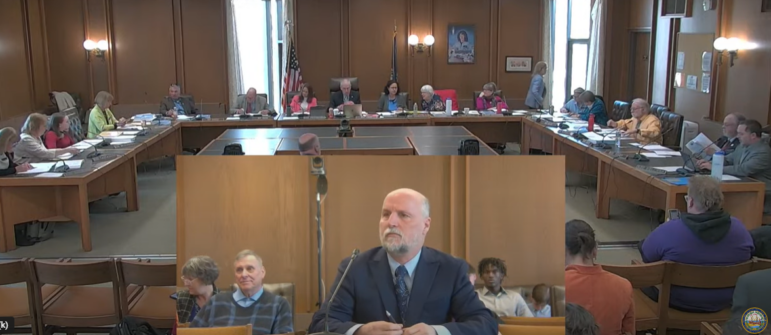By DAMIEN FISHER, InDepthNH.org
New Hampshire’s police accountability panel plans to submit its final reform report next week, but there is still no clear way to pay for the many of the recommendations.
The Commission on Law Enforcement Accountability, Community and Transparency’s latest schedule has the final report submitted to Gov. Chris Sununu on Monday, Aug. 31. It will be the third of three reports the commission will have submitted since it was created by Sununu in June.
All three reports include recommendations for new training classes, software upgrades, better reporting data, and even annual audit of all of the more than 200 law enforcement agencies in the state.
The report doesn’t include any strategy for paying for any of the recommendations. Commissioner Joseph Lascaze, ACLU-NH’s representative on the commission, said this week care should be exercised as the state is already dealing with economic problems due to the COVID-19 pandemic.
“I’m not sure how we can ask people to pay more,” Lascaze said.
The commission’s report on police discipline includes the centerpiece proposal of creating a new, independent government body to investigate allegations of police misconduct.
Deputy Attorney General Jane Young, commission chairman, made the recommendation for the independent body last week. This organization will have a hearing board of 23 members from law enforcement and the community, and there will be paid staffers.
The body would provide a form of due process for the officers accused of misconduct, as well as the people making the complaint.
Along with this new hearing commission, Young wants to add staff to the Public Integrity Unit in the Attorney General’s Office so that unit can investigate all allegations of crimes committed by police officers.
Some of the recommendations would require the legislature to pass laws and fund these new initiatives. Others, like implicit bias training for all prosecutors, would push the cost to police departments and County Attorneys’ offices, to which Commissioner Mark Morrison objects.
“If we’re going to require something, are we going to pay for it,” Morrison asked this week.
He led the charge to have the report encourage some of the recommendations rather than require them. Commissioner John Scippa, the executive director with the New Hampshire Police Standards and Training Council, said he’s already inundated with recommendations from the commission. He’s also catching up to the many action items that resulted from last year’s audit of his institution.
One recommendation to have every department audited by Police Standards and Training once every three years is out of reach for his agency, Scippa said.
“Is this something I can do right now? I can’t. Police Standards and Training does not have the resources,” Scippa said.
The commission is expected to meet Thursday to go over any other topics that have so far not been covered before the final draft is prepared and sent to Sununu on Monday.





